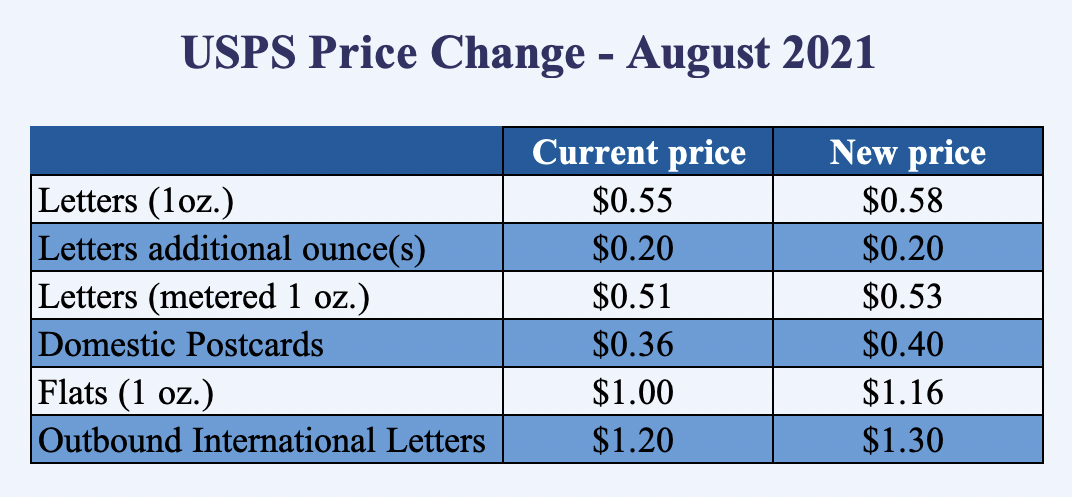

The ruling comes at a time when the Postal Service has reported 12 years of net losses, and is on track to run out of cash by 2024 without regulatory or legislative intervention.WASHINGTON, DC - The United States Postal Service will increase the price of a first class stamp on Sunday, July 10, 2022. “And I’m thrilled that the court saw the case the same way that I did.” “It was obvious to me that the Postal Service and the commission did not consider those factors, which probably should not have allowed such a large increase to hit the general public and the rate that almost everybody in this country pays,” he said. “While the statute does not specify how these objectives and factors must be accounted for in any particular rate order, the Commission must apply the relevant objectives and factors to individual rate adjustments.”ĭuring the PRC’s comment period for the proposed rate change, Carlson argued the PRC “failed to account for several statutory objectives and factors” in its justification for the rate increase, Rao wrote in her opinion.īut the commission, Carlson said, “completely ignored my comments” and approved the stamp price increase anyway. “The PAEA sets forth a framework of statutory objectives and factors for consideration in rate setting,” Rao wrote. The 2006 Postal Accountability and Enhancement Act, the last major postal bill Congress approved, required the PRC to make sure its rate-setting review met nine statutory objectives and took into account 14 statutory factors. “When the Postal Service announced this increase last October, from 50 to 55 cents, I thought the justifications that they offered were nonsense,” Carlson said in an interview with Federal News Network. Insight by CyberArk: During this exclusive CISO Handbook webinar, moderator Justin Doubleday and esteemed industry leaders will provide their perspectives on securing identity in a zero trust environment.ĭouglas Carlson, a regulatory advocate with what he described as a “lifelong interest in the Postal Service and postal operations,” brought the lawsuit against the PRC, arguing that the rate increase didn’t meet the criteria Congress had already established for rate increases. “Congress directed the commission to serve as more than just a rubber stamp of the Postal Service’s proposed rate increases … By failing to consider relevant statutory objectives and factors and declining to respond to significant public comments, the commission violated the when it approved the stamp price hike,” Rao wrote. In an opinion written by Judge Neomi Rao, the Trump administration’s former head of the Office of Information and Regulatory Affairs, a three-judge panel ruled that the Postal Regulatory Commission, which approved the rate increase last year, “failed to provide an adequate explanation of the increase” and “failed to respond to public comments challenging the increase.” In an opinion written by Judge Neomi Rao, the Trump administration’s former head.

District Court of Appeals struck down a five-cent rate increase on the price of a first-class postage stamp, which raised the price from 50 to 55 cents in January.
STAMP PRICE INCREASE SERIES
The Postal Service received the latest in a series of financial setbacks Friday when appeals court judges struck down the highest-ever postage price increase that went into effect earlier this year.


 0 kommentar(er)
0 kommentar(er)
